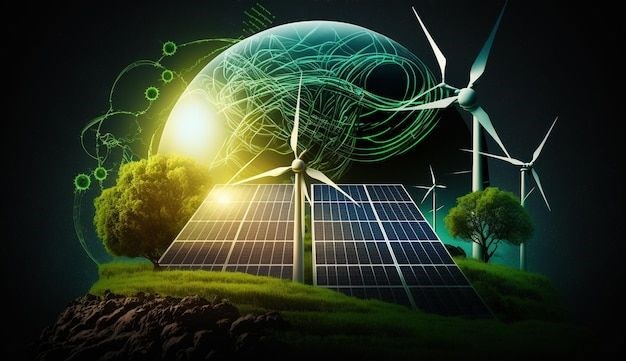Environment policies around the world continue to develop and be implemented with major goals of advancing towards the use of renewable sources of energy. Currently, all governments are putting more measures in place to reduce the emission of fossil fuels while encouraging the use of clean energy sources. These policies are directing investment in the wind, solar, and hydro electric projects which means a progressive shift from conventional power sources.
Global initiatives like the Paris Climate Accord, puts pressure on countries to reduce their emissions and pursue green energy. This has been due to the rise of more conservative targets being set in countries in an effort to achieve the set net-zero goals hence leading to enhanced technology and infrastructure. This has established-browser policy change that is promoting a competitive renewable energy market and improved solution delivery innovation equally as it increases the likelihood of the utilization of renewables at a lower price.
Renewable energy is becoming more attractive for businesses and consumers due to various financial incentives such as tax credits and subsidies. Governments are also using carbon meters to support measures of extending the use of fossil fuel. These not only help in the utilization of cleaner energy forms but also develop the employment opportunities in the usage and production of renewable energy resources.

Growing renewable energy policies are recalculating the power grids in order to integrate sustainable energy sources. Increased spending on smart grid systems and energy storage are making systems more effective and dependable. It is benefiting the energy security as it is reducing the amount of fossil fuels being imported and therefore increasing energy autonomy of many countries.
Finally, the conversion to renewable power is increasingly happening because it is mandatory to do so because of the policies in place. With the aid of advancing reforms in the energy industry, renewable energy systems will define the energy systems of the future across the world. This means that nations are becoming more conscious about their future and utility companies are approaching the future with more sustainable solutions for energy and the environment for future generation.
Conclusion
Global energy policies cannot be denied as the leading force behind the transition to renewable and sustainable energy. Increased regulatory requirements and the use of financial and other motives, as well as the ongoing development of new technologies, ensure that the growth of clean energy is today dominating in the world market. As the policies of the countries to effect change to sustainable energy source and utilization intensify in the future, the change is irreversible for the momentous and monumental gains in the environmental, economic and energy security aspects of the country.